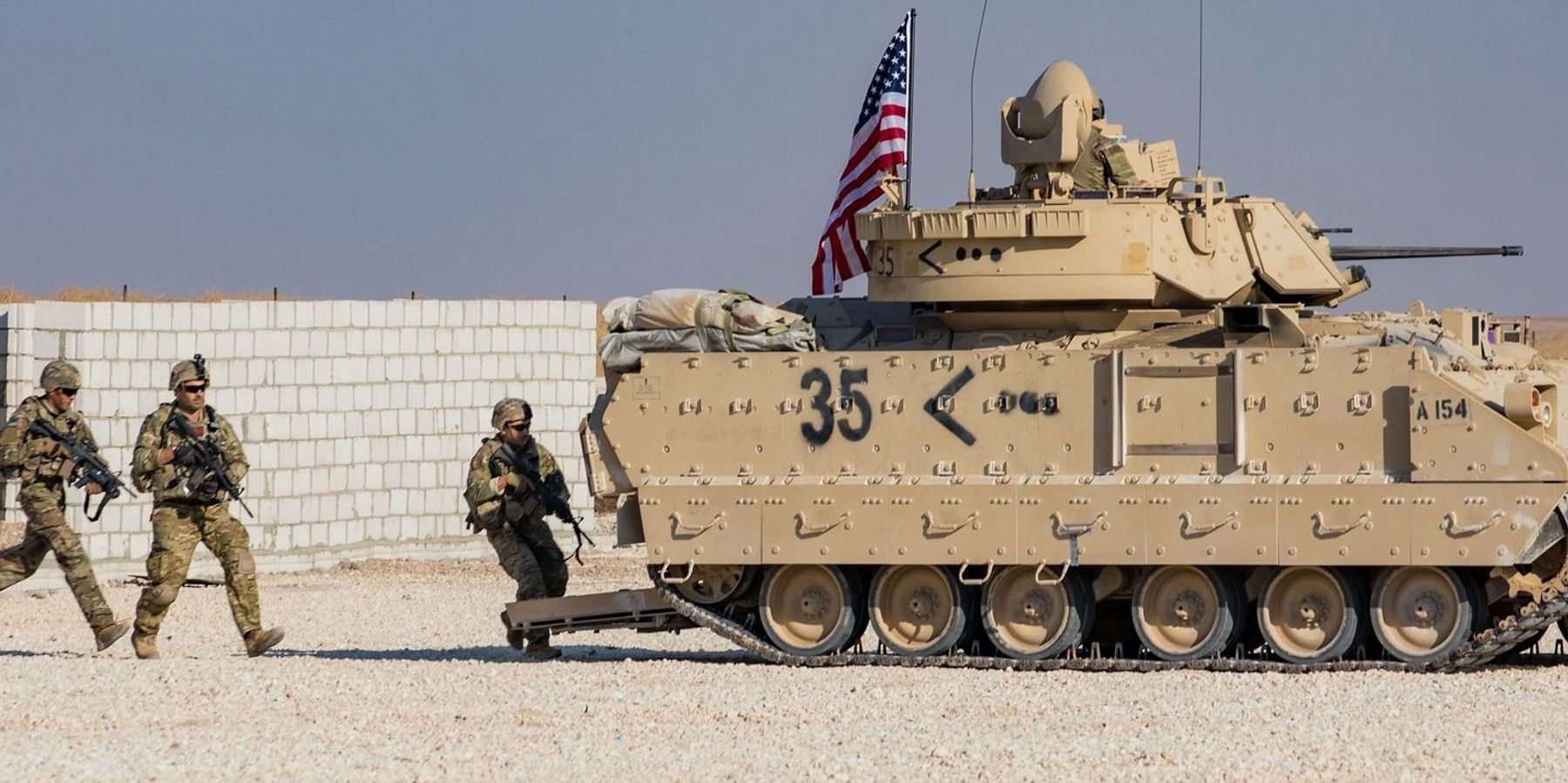On Sunday, U.S. Central Command announced that it had recently killed two people linked to Al-Qaeda in Idlib, Syria. One of the men, Wasim Tahsin Bayraqdar, was reportedly the brother of a current Syrian government minister. U.S. Central Command identified the other man as a “senior military leader of al-Qaeda affiliate Hurras al-Din.”
This is just the latest in a series of strikes carried out by the U.S. on an array of Syrian targets since the fall of dictator Bashar al-Assad in December. It’s the fourth to specifically target a member of Hurras al–Din since the organization announced it would cease operations in January.
Lethal targets have also included 75 anti-ISIS strikes in the immediate wake of Assad’s overthrow, a top ISIS leader in an area formerly controlled by Assad’s regime, a dozen fighters at an ISIS camp, and an attack on what the U.S. military says are Iranian-backed militias just over the border in Iraq. The military has used a combination of F-15 fighter jets, B-52 bombers, and A-10 air support aircraft to carry these missions out.
To say that the tempo of U.S. military attacks and raids have not let up despite the leadership shakeup in Damascus would be an understatement. The forces may have originally moved into the region due to the civil war against Assad’s government after 2014, but the anti-ISIS justification (among others) has kept the missiles flying and boots on the ground.
“It’s a travesty that even after the fall of Assad, the primary way the U.S. engages with Syria is not through any diplomatic presence but through air strikes,” said Adam Weinstein, Middle East fellow at the Quincy Institute, noting that there are reasons why the new leadership of Syria has not pushed back on these military operations, yet. “The new government in Damascus, seeing these groups as potential rivals, is probably content with their elimination.”
Given that many Islamist groups like Hurras al-Din have voluntarily dissolved under the new rebel government, it is unclear where they now fit into Washington’s justification for continued operations other than their old Al Qaeda/ISIS connections. The new ruling faction, Hay’at Tahrir Al-Sham, is also a former Al-Qaeda affiliate but its leader, Ahmed Hussein al-Sharaa, was removed from a terrorist designation list by the Biden administration in December in an apparent gesture of goodwill. Perhaps, as Weinstein described, the U.S. is now doing al-Sharaa a favor.
Nevertheless, after Assad’s overthrow, the Biden administration announced that despite the regime change, Washington would still make its military presence felt to ensure a power vacuum was not filled by ISIS. Biden did not mention that Al-Qaeda remnants were also on the target list.
Trump has not articulated a clear position on the new Syrian government, but in February he indicated his preference for a scaled back U.S. military presence in the country. "We're not involved in Syria. Syria is in its own mess. They've got enough messes over there. They don't need us involved," he said in January. He has spoken publicly about targeting ISIS in Somalia but said little about his administration’s attacks on the group or other militant elements in Syria or Iraq, which still hosts forces of 2,000 and 2,500 U.S. troops respectively.
“U.S. troops in northeast Syria are unlikely to impact stability or internal dynamics enough to justify their continued presence,” said Weinstein.
Even if Trump does withdraw troops from Syria, U.S. air strikes won’t necessarily stop as they are launched from U.S. bases in the region. Meanwhile, Defense Secretary Pete Hegseth recently confirmed that the Pentagon would loosen its general restrictions designed to mitigate civilian harm through air strikes. The new policy would allow the military to target a wider spread of people through air strikes beyond just senior members of terrorist organizations.
Because the Trump administration has not yet laid out a definite military strategy in Syria, it remains to be seen how these rules will affect U.S. airstrikes — their tempo and targets — in Syria going forward.
Hegseth also fired three Judge Advocate General’s Corps lawyers last Monday responsible for providing legal advice to the military (including authorizing and reviewing air strikes), describing them as “roadblocks” to the president's authority. This has raised alarm bells for a dozen Senate Armed Services Committee members who stated in a letter, “Without independent counsel, military operations risk violating international law, exposing U.S. forces to war crimes allegations, damaging alliances, and undermining global legitimacy.”
After more than a decade of intervention in Syria and an unprecedented regime change, the U.S. is still at war there. The new government is no longer a stated adversary and Trump has acknowledged the need to get out, but the question remains: what is the justification for not only the troop presence, but continued bombing of targets in this sovereign country? How long until one of our troops is killed or the new government decides that we have killed off enough of his old comrades (or rivals in arms)?
“The whole situation in Syria is complex, and its future is uncertain,” offered John Allen Gay, executive director of the John Quincy Adams Society.
“The mission is unclear and has been unclear since the destruction of ISIS," he added. "I don't want American troops sitting in the middle of a complex, uncertain situation, especially if we're not even sure what they're there to do.”
- DoD denies US military building a new 'base' in Syria ›
- If true, Trump move to withdraw US military from Syria is the right one ›
- Kurds sign deal in Syria: Case for US troops there 'weaker than ever' | Responsible Statecraft ›
- Ambassador: US to reduce military bases in Syria “to one” | Responsible Statecraft ›
- Why are US National Guardsman getting killed in Syria? ›
















